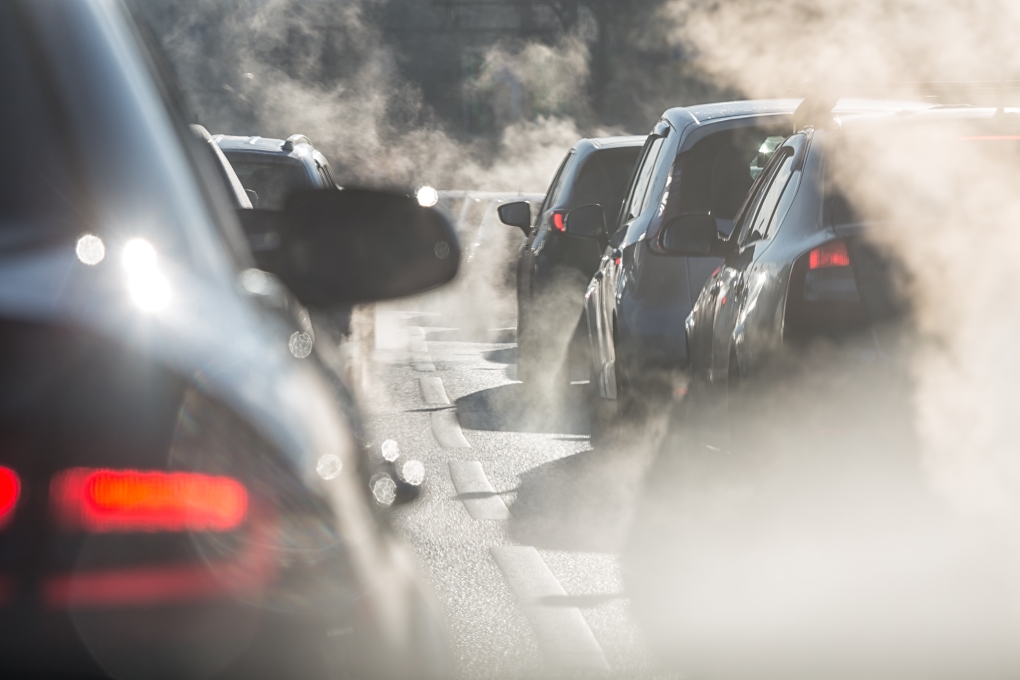Benzene and your health

The risk to your health from breathing in any chemical depends on how much is in the air and how long and how often you breathe it in. Not all people have the same risk. Age, gender, genetics, lifestyle, and other factors play a role in how exposure to chemicals affects health. Breathing very high levels of benzene for hours or days can cause different health impacts than breathing high levels of benzene for years. While you can’t control all the sources of benzene in the environment, taking action to reduce your exposure can lower your risk of health effects now and in the future.
What is benzene and where does it come from?
Benzene is one of many volatile organic compounds (VOCs). A VOC is a carbon-based chemical that easily evaporates into the air and can react with sunlight to form air pollution. Both large and small sources release VOCs into the air. All VOCs, including benzene, can form ground-level ozone. Ground-level ozone can cause both short-term and long-term health effects.
Tobacco smoke and products like paint and cleaning supplies release small amounts of benzene into the air. Oil and gas operations, wildfires, and vehicle exhaust release larger amounts of benzene into the air. Everyone is exposed to a small amount of benzene every day. Low levels of benzene are in the outdoor environment, in cars and buses, in the workplace, and in the home.
Benzene and your health
- Breathing low levels of benzene for a short time usually does not cause immediate or serious health impacts. Some people may experience lung irritation, coughing, dizziness, or headaches.
- Prolonged exposure to high levels of benzene can cause excessive bleeding and affect the immune system, increasing the chance of infection.
- Prolonged exposure to benzene also increases the risk of developing cancers, including leukemia. Spending more time around benzene and being in environments with higher amounts raise the chances of developing cancer.
- People with asthma, young children, older adults, and people who are sensitive to chemicals may be more likely to have health impacts from benzene.
If you have serious symptoms, or symptoms that don’t go away, contact a health care provider.
If you don’t have insurance or a health care provider, we encourage you to apply for Health First Colorado (Colorado’s Medicaid Program) or the Child Health Plan Plus (CHP+). Visit Health First Colorado
Reducing exposure to benzene reduces the risk of health problems
There are rules and regulations to help protect the environment and health, but you can also take steps to further minimize exposures. If you are concerned about benzene, consider these steps to reduce your exposure:
- Avoid cigarette smoke.
- If you live in an area where you believe you are being exposed to benzene, it is important that you see a healthcare provider and get routine health screenings.
- Air cleaners can improve indoor air quality. Benzene can be removed by air cleaners that contain activated carbon filters.
- Don’t idle vehicles or start gas-powered equipment in the garage.
- If possible, remove solvents and gasoline-powered tools and engines from attached garages. Use these tools and substances in well-ventilated areas.
- When using a gas stove, turn on the kitchen fan or open windows for fresh air.
- Reducing the amount and time spent exposed to benzene can lower overall cancer risk. There are things you can do to help reduce your total risk of cancer.
Learn more about benzene
- In January 2025, the Colorado Air Quality Control Commission selected benzene as one of five priority air toxics. The new rule aligns with requirements in Colorado’s Public Protections From Toxic Air Contaminants Act. Next, the CDPHE Air Pollution Control Division will propose health-based standards and emission control strategy regulations for the five air toxics.
- To stay involved: Visit the division’s public participation opportunities web page and sign up for email updates on air toxics.
- The U.S. Environmental Protection Agency lists benzene as a hazardous air pollutant (HAP) under the Clean Air Act. HAPs can cause serious health problems and come from a variety of different sources.
- The Agency for Toxic Substances and Disease Registry provides additional information about benzene and health
Contact
For information about benzene and your health, contact ToxCall at 303-692-2606 or cdphe_toxcall@state.co.us.